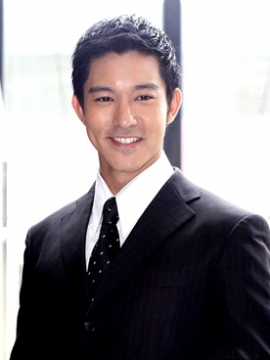By Noah Smith
I was a Shinzo Abe skeptic. That’s putting it mildly. After all, I was still living in Japan when Abe’s disastrous first term in office put a halt to the reform process begun by Junichiro Koizumi, and ushered in a return to the bad old days of prime minister musical chairs that paralyzed Japan in the 1990s.
When Abe swept back into power in 2012, I thought he was just going to try to talk down the yen and give a little boost to stocks, increasing his public support just long enough to ram through a revision of Japan’s pacifist constitution. I thought he was going to ignore Japan’s moribund economy and long-festering social problems in order to throw red meat to his right-wing backers.
Boy, was I wrong. I was wrong, wrong, wrong.
Let me be blunt: Shinzo Abe is the most effective national leader in the world right now. I never thought I’d say this, but he’s an example that the rest of the world should be following.
Abenomics
This time around, Abe didn't ignore the economy. Backed by economic adviser Koichi Hamada and Bank of Japan Governor Haruhiko Kuroda, Abe first implemented the biggest monetarist push in world history. He went the opposite direction of Europe, and -- unlike the U.S. -- he gave every indication that the shift toward monetarism was permanent. The result: Japan has escaped deflation. The stock market is up, growth is way up and even wages are finally starting to rise.
In other words, unlike everyone else in the world, Abe listened to Milton Friedman, and the results are looking good. As the Fed contemplates not whether to taper its quantitative easing but how fast, it might want to look at what’s happening in Japan.
But monetary policy was just the beginning of Hurricane Abe.
Japan’s top social problem is the role of women. The sexism of corporate Japan is legendary, and many millions of Japanese women are underemployed and out of the labor force; yet instead of pushing women back to traditional child-rearing roles, this has mainly just lowered the fertility rate to sub-European levels. But since taking office, Abe -- whose party is famous for sexist gaffes -- has become the most feminist leader I’ve ever seen.
He constantly talks about the need to make women more equal in the workplace -- no small thing in a country where corporations have a reputation for following the government’s wishes. Abe’s detractors dismiss this as empty talk, but talk is never empty, especially when you say things that no one has said before. And Abe is putting his money where his mouth is, with a raft of measures to improve working women’s access to affordable day care.
Already, I can sense a shift. When I lived in Japan 10 years ago, people said that women’s situation would never change, and treated women’s second-class status as an immutable fact of Japanese culture. Nowadays, when I go back, everyone is talking about women’s changing role, and everyone agrees that Abe is the prime mover.
But that’s just the beginning. Abe is moving to cut Japan’s corporate tax rate, which along with the U.S.'s is the world’s highest. The country's government-run pension fund will probably invest more of its money in risky but high-yielding assets (in an echo of George W. Bush’s failed plan for Social Security). Abe has launched a large number of deregulation efforts, and has pushed -- so far unsuccessfully -- for Japan to join the Trans-Pacific Partnership, which would lower trade barriers. He is beginning to curb the powers of Japan’s entrenched bureaucracy. He has even suggested bringing in 200,000 immigrants a year to supplement Japan’s shrinking labor force.
On the foreign policy front, Abe has surprised me as well. Yes, he angered China and South Korea by visiting the Yasukuni Shrine (where more than 1,000 war criminals are buried), appointing some right-wing historical revisionists, and generally being a nationalist. But recently he has turned his nationalism into something that looks like liberal internationalism, standing up for the various small Asian countries that have been bullied by China’s push into the South China Sea. Instead of being an apologist for old Japanese imperialism, Abe is championing the rule of law and the freedom of the seas.
Michael Cucek, a blogger who writes about Japanese politics (usually very critically), calls Abe an “idealist liberal icon,” writing: “Abe Shinzo should perhaps now be considered the standard bearer of liberalism around the world.” To me, Abe looks very much like Japan’s answer to Ronald Reagan -- an unapologetic nationalist who wants to slash government and make a principled stand against a bullying rival. And unlike Reagan, Abe is a full-throated feminist.
But where Abe really shines is in comparison with previous Japanese leaders. Those of us who watch Japan could be forgiven for thinking that nothing ever changes. At times, Japanese politics seems like the movie ``Edge of Tomorrow,'' where everything keeps repeating and the good guys seem to never win. Koizumi was different, but Koizumi seemed like a flash in the pan. Now here is Koizumi’s protégé, continuing and expanding the work his mentor began.
The rest of the world should be paying attention. For the first time in 25 years, Japan looks like it could be at the head of the international pack. It’s far from a done deal, of course, but this writer, at least, is a Shinzo Abe convert.
Reference: BLOOMBERG
I was a Shinzo Abe skeptic. That’s putting it mildly. After all, I was still living in Japan when Abe’s disastrous first term in office put a halt to the reform process begun by Junichiro Koizumi, and ushered in a return to the bad old days of prime minister musical chairs that paralyzed Japan in the 1990s.
When Abe swept back into power in 2012, I thought he was just going to try to talk down the yen and give a little boost to stocks, increasing his public support just long enough to ram through a revision of Japan’s pacifist constitution. I thought he was going to ignore Japan’s moribund economy and long-festering social problems in order to throw red meat to his right-wing backers.
Boy, was I wrong. I was wrong, wrong, wrong.
Let me be blunt: Shinzo Abe is the most effective national leader in the world right now. I never thought I’d say this, but he’s an example that the rest of the world should be following.
Abenomics
This time around, Abe didn't ignore the economy. Backed by economic adviser Koichi Hamada and Bank of Japan Governor Haruhiko Kuroda, Abe first implemented the biggest monetarist push in world history. He went the opposite direction of Europe, and -- unlike the U.S. -- he gave every indication that the shift toward monetarism was permanent. The result: Japan has escaped deflation. The stock market is up, growth is way up and even wages are finally starting to rise.
In other words, unlike everyone else in the world, Abe listened to Milton Friedman, and the results are looking good. As the Fed contemplates not whether to taper its quantitative easing but how fast, it might want to look at what’s happening in Japan.
But monetary policy was just the beginning of Hurricane Abe.
Japan’s top social problem is the role of women. The sexism of corporate Japan is legendary, and many millions of Japanese women are underemployed and out of the labor force; yet instead of pushing women back to traditional child-rearing roles, this has mainly just lowered the fertility rate to sub-European levels. But since taking office, Abe -- whose party is famous for sexist gaffes -- has become the most feminist leader I’ve ever seen.
He constantly talks about the need to make women more equal in the workplace -- no small thing in a country where corporations have a reputation for following the government’s wishes. Abe’s detractors dismiss this as empty talk, but talk is never empty, especially when you say things that no one has said before. And Abe is putting his money where his mouth is, with a raft of measures to improve working women’s access to affordable day care.
Already, I can sense a shift. When I lived in Japan 10 years ago, people said that women’s situation would never change, and treated women’s second-class status as an immutable fact of Japanese culture. Nowadays, when I go back, everyone is talking about women’s changing role, and everyone agrees that Abe is the prime mover.
But that’s just the beginning. Abe is moving to cut Japan’s corporate tax rate, which along with the U.S.'s is the world’s highest. The country's government-run pension fund will probably invest more of its money in risky but high-yielding assets (in an echo of George W. Bush’s failed plan for Social Security). Abe has launched a large number of deregulation efforts, and has pushed -- so far unsuccessfully -- for Japan to join the Trans-Pacific Partnership, which would lower trade barriers. He is beginning to curb the powers of Japan’s entrenched bureaucracy. He has even suggested bringing in 200,000 immigrants a year to supplement Japan’s shrinking labor force.
On the foreign policy front, Abe has surprised me as well. Yes, he angered China and South Korea by visiting the Yasukuni Shrine (where more than 1,000 war criminals are buried), appointing some right-wing historical revisionists, and generally being a nationalist. But recently he has turned his nationalism into something that looks like liberal internationalism, standing up for the various small Asian countries that have been bullied by China’s push into the South China Sea. Instead of being an apologist for old Japanese imperialism, Abe is championing the rule of law and the freedom of the seas.
Michael Cucek, a blogger who writes about Japanese politics (usually very critically), calls Abe an “idealist liberal icon,” writing: “Abe Shinzo should perhaps now be considered the standard bearer of liberalism around the world.” To me, Abe looks very much like Japan’s answer to Ronald Reagan -- an unapologetic nationalist who wants to slash government and make a principled stand against a bullying rival. And unlike Reagan, Abe is a full-throated feminist.
But where Abe really shines is in comparison with previous Japanese leaders. Those of us who watch Japan could be forgiven for thinking that nothing ever changes. At times, Japanese politics seems like the movie ``Edge of Tomorrow,'' where everything keeps repeating and the good guys seem to never win. Koizumi was different, but Koizumi seemed like a flash in the pan. Now here is Koizumi’s protégé, continuing and expanding the work his mentor began.
The rest of the world should be paying attention. For the first time in 25 years, Japan looks like it could be at the head of the international pack. It’s far from a done deal, of course, but this writer, at least, is a Shinzo Abe convert.
Reference: BLOOMBERG













